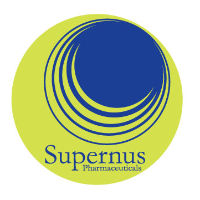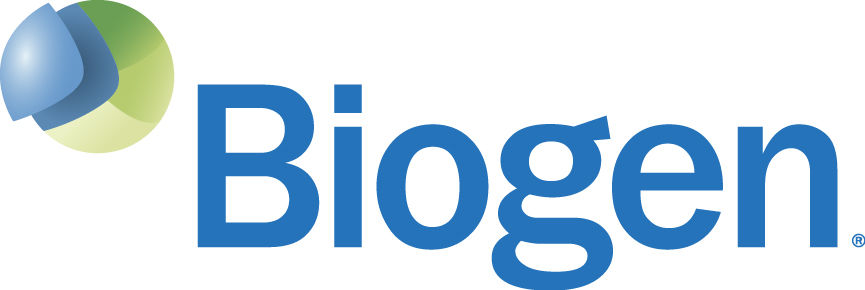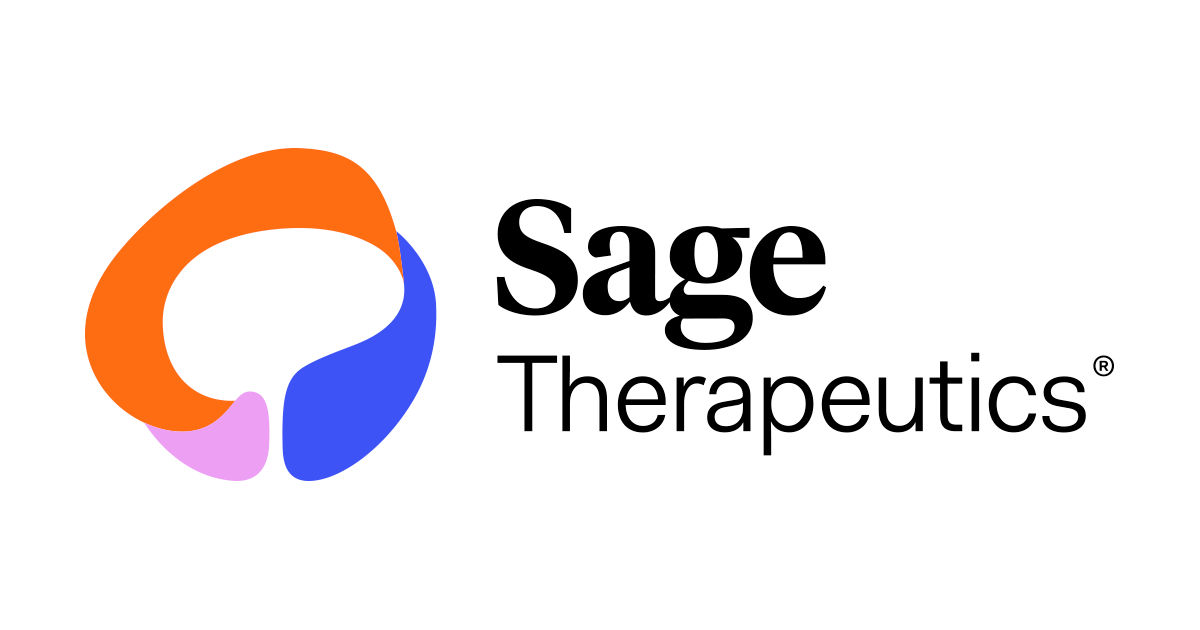预约演示
更新于:2025-09-09

Supernus Pharmaceuticals, Inc.
更新于:2025-09-09
概览
标签
神经系统疾病
其他疾病
内分泌与代谢疾病
小分子化药
化学药
疾病领域得分
一眼洞穿机构专注的疾病领域
暂无数据
技术平台
公司药物应用最多的技术
暂无数据
靶点
公司最常开发的靶点
暂无数据
| 排名前五的药物类型 | 数量 |
|---|---|
| 小分子化药 | 24 |
| 化学药 | 2 |
关联
26
项与 Supernus Pharmaceuticals, Inc. 相关的药物作用机制 GABAA receptor 正变构调节剂 |
在研机构 |
最高研发阶段批准上市 |
首次获批国家/地区 美国 |
首次获批日期2023-08-04 |
靶点 |
作用机制 NET抑制剂 |
在研适应症 |
非在研适应症 |
最高研发阶段批准上市 |
首次获批国家/地区 美国 |
首次获批日期2021-04-02 |
靶点 |
作用机制 ADRA2激动剂 |
最高研发阶段批准上市 |
首次获批国家/地区 美国 |
首次获批日期2018-05-16 |
132
项与 Supernus Pharmaceuticals, Inc. 相关的临床试验NCT07125222
Use of Gocovri to Improve Disability Due to Radiation Encephalopathy
A study to assess the effect of Gocovri (extended-release amantidine) to improve disability as assessed by the disability rating scale (DRS) and cognition as assessed by the Montreal Cognitive Assessment (MoCA) test in patients with radiation encephalopathy.
开始日期2025-09-01 |
申办/合作机构 |
NCT07141329
An Open-Label Extension, One-Year, Safety, and Efficacy Study of SPN-817 in Adults With Focal Onset Seizures
This is a Phase 3 open-label extension study to evaluate the long-term safety and efficacy of SPN-817.
开始日期2025-07-30 |
NCT06580444
Brexanolone to Target Concurrent Posttraumatic Stress Disorder (PTSD) and Stress Induced Alcohol Use in Veterans: A Dose Finding Study
The purpose of this research study is to find out how Zulresso®/brexanolone influences Posttraumatic Stress Disorder (PTSD) symptoms and alcohol use.
开始日期2025-07-28 |
申办/合作机构  Yale University Yale University [+2] |
100 项与 Supernus Pharmaceuticals, Inc. 相关的临床结果
登录后查看更多信息
0 项与 Supernus Pharmaceuticals, Inc. 相关的专利(医药)
登录后查看更多信息
84
项与 Supernus Pharmaceuticals, Inc. 相关的文献(医药)Clinical Drug Investigation
Revisiting the Role of Serotonin in Attention-Deficit Hyperactivity Disorder: New Insights from Preclinical and Clinical Studies
Review
作者: Yegla, Brittney ; Maletic, Vladimir ; Solomon, Matia B ; Robbins, Trevor W ; Newcorn, Jeffrey H ; Rubin, Jonathan
Attention-deficit hyperactivity disorder (ADHD) is characterized by core symptoms of inattention, hyperactivity, and impulsivity. Aberrant dopaminergic and noradrenergic neurotransmission are often implicated in the pathogenesis of these symptoms because ADHD treatments increase synaptic levels of these neurotransmitters in brain regions associated with attention and impulse control. However, some ADHD treatments also enhance serotonergic neurotransmission in these regions, which could contribute to their efficacy. Here, we review preclinical and clinical data highlighting functional interactions between the serotonergic and catecholaminergic systems in mediating ADHD phenotypes and responses to treatment. The potential utility of serotonergic compounds for treating distinct behavioral features and psychiatric comorbidities (e.g., depression) is also discussed. Overall, preclinical and clinical studies underscore important neuromodulatory effects of serotonin on the catecholaminergic system in mediating distinct ADHD behavioral phenotypes, notably hyperactivity-impulsivity and emotional dysregulation. Incorporating a basic understanding of dynamic monoaminergic interactions and their contributions to ADHD symptoms may identify new targets for treatment. Beyond ADHD core symptoms, emotional dysregulation, which is closely linked to serotonergic dysfunction, is common in ADHD and significantly contributes to negative outcomes across the lifespan. Therefore, an expanded conceptualization of ADHD that includes emotional dysregulation may facilitate insight into ADHD pathology and treatment.
2025-04-01·JOURNAL OF CHILD AND ADOLESCENT PSYCHOPHARMACOLOGY
Viloxazine Extended-Release Administered With Psychostimulants in Children and Adolescents With Attention-Deficit/Hyperactivity Disorder: A Phase 4, Open-Label Trial
Article
作者: Yarullina, Ilmiya ; Hayman, Kimberley ; Asubonteng, Kobby ; Earnest, Jami ; Childress, Ann ; Cox, Georgette ; Rubin, Jonathan
Introduction: Viloxazine extended-release (VLX-ER) is effective as monotherapy for attention-deficit/hyperactivity disorder (ADHD), and is often tried as an add-on treatment when psychostimulant therapy fails to provide an adequate treatment response. This phase 4, open-label study evaluated safety, tolerability, and efficacy of VLX-ER with optimized psychostimulants in pediatric participants with ADHD. Morning versus evening VLX-ER use was also evaluated. Methods: Children and adolescents (6-17 years) experiencing inadequate psychostimulant response (investigator-assessed ADHD Rating Scale-5 [ADHD-RS-5] score ≥24 and Clinical Global Impression-Severity of Illness [CGI-S] scores ≥3) during a 4-week screening period received flexibly-dosed VLX-ER, taken once daily in the morning (weeks 14) or evening (weeks 5-8), concomitantly with a psychostimulant. Safety (primary outcome) and efficacy were evaluated relative to baseline. Results: Fifty-six participants (26 children; 30 adolescents) enrolled, and 48 (85.7%) completed the study. Combination therapy was well tolerated, with only two participants (3.6%) withdrawing due to adverse events (AEs). The most commonly reported AEs were headache (17.9%), decreased appetite (12.5%), and upper respiratory tract infection (10.7%). Mean ± standard deviation investigator-assessed ADHD-RS-5 scores (baseline: 37.2 ± 8.4) improved progressively by -13.5 ± 9.7 points at week 4 and -18.2 ± 10.0 points at week 8 (p < 0.0001 each). Likewise, CGI-S scores (baseline: 4.4 ± 0.6) improved by -0.9 ± 0.9 at week 4 and -1.4 ± 1.1 at week 8 (p < 0.0001 each). Parent-assessed scales, including ratings of morning and evening ADHD behaviors and sleep disturbances, showed significant improvement relative to baseline regardless of morning (week 4) or evening (week 8) VLX-ER dosing. Conclusion: Combined treatment with VLX-ER and psychostimulant therapy showed acceptable safety and tolerability, with improvement in morning and evening ADHD behaviors and sleep disturbances relative to stimulant monotherapy. Timing of VLX-ER administration (morning or evening) did not appear to affect safety, drug response, or sleep improvement.
2025-03-01·Journal of Parkinsons Disease
Continuous, subcutaneous apomorphine infusion for Parkinson disease motor fluctuations: Results from the phase 3, long-term, open-label United States InfusON study
Article
作者: Dashtipour, Khashayar ; Hui, Jennifer ; Qin, Peibing ; LeWitt, Peter A ; Espay, Alberto J ; Shill, Holly A ; Lew, Mark ; Formella, Andrea E ; Pahwa, Rajesh ; Isaacson, Stuart H ; Ceresoli-Borroni, Gianpiera ; Agarwal, Pinky
Background:
Continuous subcutaneous apomorphine infusion (CSAI) has been used globally since the 1980s for Parkinson disease (PD) motor fluctuations but has not been available in the United States (US).
Objective:
Evaluate CSAI for motor fluctuations in the US setting.
Methods:
This open-label study (NCT02339064) enrolled patients with PD experiencing ≥3 hours (h) daily OFF time despite optimized levodopa and current/prior use of at least one other adjunctive therapy. CSAI was initiated with a 1–2 mg bolus followed by 1 mg/h infusion titrated to optimal efficacy and tolerability. Following titration, patients entered a 52-week maintenance period.
Results:
Of 99 patients treated, 85 completed the titration period, 69 completed maintenance week 12 and 48 completed maintenance week 52. Common treatment-related adverse events included infusion site nodules and erythema, dyskinesia, nausea, and somnolence, each of which occurred more frequently during the titration period. Reduction in OFF time began at CSAI initiation and reached a mean of 3.0 ± 3.18 h/day by maintenance week 12 (primary efficacy endpoint), with a corresponding increase in Good ON time of 3.1 ± 3.35 h/day. By maintenance week 12, 68% of patients rated themselves as much or very much improved, 62% had at least a 2-h reduction in daily OFF time, and mean concomitant oral levodopa and levodopa equivalent doses (excluding CSAI) had been reduced by 198 mg/day and 283 mg/day, respectively. Improvements were maintained through week 52.
Conclusions:
This study supports the clinical utility of CSAI to reduce OFF time and increase Good ON time in patients with motor fluctuations inadequately controlled with oral therapy.
272
项与 Supernus Pharmaceuticals, Inc. 相关的新闻(医药)2025-09-04
▲多重福利来袭,点击即可预约
2022年8月,60多年来全球首个采用新机制的抗抑郁口服药Auvelity
(氢溴酸右美沙芬和盐酸安非他酮复方缓释片)在美国获批上市,打破了抗抑郁老药市场格局。
2023年8月,首个也是唯一一个用于成人产后抑郁症(PPD)口服治疗药物Zurzuvae(Zuranolone)在美国获批上市,拓宽了抑郁症治疗患者人群。
2025年1月,强生宣布以总交易额约为146亿美元收购Intra-Cellular Therapies,该公司核心产品为5-羟色胺2A(5-HT2A)受体拮抗剂和多巴胺受体D2调节剂Caplyta(卢美哌隆,Lumateperone),Caplyta已获FDA批准用于治疗成人精神分裂症,以及与双相I型或II型障碍相关的抑郁发作。
2025年8月,艾伯维以高达12亿美元的价格收购Gilgamesh Pharmaceuticals旗下的抗抑郁药物bretisilocin,该药物目前处于临床2期。
这些新机制药物获批和重磅交易显示了制药行业对抑郁症治疗领域的重视和投入,也反映了市场对新型、更有效抑郁症药物的迫切需求。
01
抑郁症流行病学
抑郁症是一种常见的精神障碍,主要表现为情绪低落、兴趣减退、思维迟缓和身体不适等症状。它不仅影响患者的生活质量,还可能对工作、学习和社交功能产生负面影响。
根据2021年全球疾病负担研究,全球抑郁症发病数为3.5744亿例,患病数为3.3241亿例,伤残调整生命年(DALYs)为5633万。抑郁症在全球范围内都是一个重大的公共卫生挑战,其发病率、患病率和DALYs的年龄标准化率虽有下降趋势,但绝对病例数和年龄标准化率仍在增加[1]。
重度抑郁症是美国最常见的精神障碍之一。对于某些人来说,重度抑郁症会导致严重的损伤,干扰或限制一个人进行主要生活活动的能力。
2021年,美国估计有2100万成人至少经历过一次重度抑郁发作,占所有美国成人的8.3%。其中,女性的发病率为10.3%,高于男性的6.2%,18-25岁年龄段的发病率为18.6%,是所有年龄段中最高的,在有多种(两个或以上)种族身份的人群中,重度抑郁发作的发病率最高,为13.9%(图1)[2]。
图1. 2021年美国18岁或以上成年人过去一年重度抑郁发作的患病率
据估计,美国有500万12至17岁的青少年至少有一次重度抑郁发作。这一数字占美国12至17岁人口的20.1%。
与男性(11.5%)相比,青春期女性(29.2%)的重度抑郁发作患病率更高。重度抑郁发作的患病率在两个或两个以上种族的青少年中最高(27.2%)。
图2. 2021 年美国青少年重度抑郁发作的过去一年患病率
根据中国精神卫生调查(CMHS)的数据,中国抑郁症的终生患病率为6.8%,12个月患病率为3.6%。这意味着超过9500万中国人一生中曾患过抑郁症。女性抑郁症的终生患病率为8.0%,显著高于男性的5.7%[3]。
02
抑郁症发病机制
到目前为止,抑郁症的发病机制吸引了世界各地越来越多的研究人员进行探索,但确切的发病机制仍不清楚。受体假说已被用于从多个角度阐明抑郁症的发病机制[1]。
除了众所周知的受体,如NMDA受体、AMPA受体、糖皮质激素受体、5-HT受体、GABA受体和DA受体外,“非经典”受体,如代谢型谷氨酸受体、阿片受体和胰岛素受体,对抑郁症的发病机制也很重要(图1)。
此外,大量研究表明,抑郁症的发生和发展与遗传基础密切相关,遗传基础占抑郁症风险的近 40-50%,导致抑郁症成为一种高度遗传的疾病,并受到更广泛的关注。
由于抑郁症(MDD)的发病机制复杂,准确的诊断方法和药物治疗策略相对有限。为了解释抑郁症的发病机制,提出了几种假说,包括:(i)下丘脑-垂体-肾上腺(HPA)轴功能障碍假说,(ii)单胺假说,(iii)炎症假说,(iv)遗传和表观遗传异常假说,(v)大脑结构和功能重塑假说,以及(vi)社会心理假说(图3)[4]。
图3. 抑郁症发病机制
HPA轴功能障碍假说认为,抑郁症的发生与HPA轴的过度激活和负反馈机制受损密切相关。这种功能障碍导致GC水平异常升高,进而影响神经递质和神经营养因子的活性,最终导致抑郁症的发生。
单胺假说是解释抑郁症发病机制的经典理论之一,单胺假说认为,抑郁症的发生与大脑中单胺类神经递质的缺乏有关,主要包括5-羟色胺(5-HT,血清素)去甲肾上腺素(NE)、多巴胺(DA)等神经递质。
许多抗抑郁药物的作用机制都是通过增加大脑中单胺类神经递质的水平来发挥作用。例如,选择性5-羟色胺再摄取抑制剂(SSRIs)通过抑制5-HT的再摄取,增加突触间隙中5-HT的浓度,从而改善抑郁症状。三环类抗抑郁药(TCAs)则同时抑制5-HT和NE的再摄取。这些药物的疗效支持了单胺假说。
然而,没有任何一种假说能够单独充分解释抑郁症(MDD)的病理基础,而这些假说所提出的许多机制相互之间存在交互作用。近年来,在识别抑郁症的新药物疗法、诊断标准以及非药物预防措施方面取得了巨大进展,并启动了相关的临床试验。具体而言,越来越多的证据表明,星形胶质细胞功能障碍在抑郁症中起着重要作用。在实验动物中,通过药物消融内侧前额叶皮质(mPFC)中的星形胶质细胞会导致抑郁样症状,而且对抑郁症患者的尸检研究显示,其前额叶皮质(PFC)、海马和杏仁核中胶质细胞的密度降低。
03
获批的抑郁症药物
全球已有多款药物上市,不过目前世界各地抗抑郁症治疗相关指南中推荐的药物治疗方案一致性差,美国常用的12种抗抑郁药包括了选择性5-羟色胺再摄取抑制剂(SSRIs)、5-羟色胺和去甲肾上腺素再摄取抑制剂(SNRIs)以及非典型抗抑郁药。
这些药物分别是:舍曲林(左洛复)、艾司西酞普兰(来士普)、曲唑酮、氟西汀(百忧解)、安非他酮(安非他酮)、度洛西汀(欣百达)、喹硫平(思瑞康)、西酞普兰(喜普妙)、文拉法辛(怡诺思)、阿立哌唑(安律凡)、帕罗西汀(帕罗西汀)和米氮平(瑞美隆)。这些药物常被用于治疗重度抑郁症及相关疾病,因为它们疗效显著且副作用各有不同,使临床医生能够根据患者个体需求调整治疗方案[5]。
全球常用的抗抑郁症药物有灵北的艾司西酞普兰、辉瑞的舍曲林、艾伯维的氟伏沙明、GSK的帕罗西汀、礼来的度洛西汀和惠氏的文拉法辛等。
近几年,也有一些新颖机制的抗抑郁药物获批上市。
2019年3月,艾司氯胺酮鼻喷雾剂首次获得美国FDA批准,用于治疗难治性抑郁症(TRD),需与口服抗抑郁药联合使用。
艾司氯胺酮(Esketamine)是氯胺酮的右旋异构体,具有更高的效价,通过阻断NMDA受体,增加谷氨酸的释放,激活AMPA受体,促进神经营养因子(如BDNF)的产生,从而增强突触可塑性和神经再生(图4)[6]。
图4. 艾司氯胺酮作用机制
艾司氯胺酮的SUSTAIN-3试验结果显示:在诱导治疗期间,蒙哥马利-阿斯伯格抑郁量表(MADRS)总分有所下降,且这种下降在优化/维持治疗期间得以维持(各阶段基线至阶段终点的平均[标准差]变化:诱导期:-12.8[9.73];优化/维持期:+0.2[9.93])。在诱导治疗终点时,有35.6%的参与者达到缓解;在第112周和优化/维持治疗终点时,分别有48.5%和49.6%的参与者达到缓解(图5)[7]。
图5. 艾司氯胺酮的SUSTAIN-3试验结果
2023年4月20日,中国国家药品监督管理局正式批准了强生公司生产的盐酸艾司氯胺酮鼻喷雾剂(商品名:速开朗)在中国上市。这是中国首个获批的具有全新作用机制和给药方式的抗抑郁药物,主要用于与口服抗抑郁药联合使用,能够快速缓解伴有急性自杀意念或行为的成人抑郁症患者的抑郁症状。
2025年1月21日,强生宣布FDA批准了SPRAVATO®(Esketamine)CIII 鼻喷雾剂的补充新药申请(sNDA),使这种创新疗法成为第一个也是唯一一个针对对至少两种口服抗抑郁药反应不足的重度抑郁症(MDD)成年人的单一疗法。
2022年8月,美国生物医药公司Axsome Therapeutics的抗抑郁口服药Auvelity获得美国FDA批准,用于治疗成年人抑郁症(MDD),成为60多年来全球首个采用新机制的抗抑郁口服药,在拥挤的抗抑郁老药市场中开辟了一个新市场。
Auvelity是一种固定剂量的复方缓释片,主要成分包括氢溴酸右美沙芬(45mg)和盐酸安非他酮(105mg),右美沙芬作为NMDA受体拮抗剂和σ-1受体激动剂,调节谷氨酸能神经传递,具有抗惊厥和神经保护作用,还能阻断血清素和多巴胺的再摄取;安非他酮抑制CYP2D6酶,延长右美沙芬的半衰期,从而增强其效果(图6)。
图6. Auvelity作用机制
临床试验数据显示,Auvelity治疗成人MDD患者起效迅速,治疗1周即可显著改善抑郁症状。治疗2周后,临床治愈率较安慰剂有显著提高,且持续至治疗结束。安全性结果显示Auvelity耐受性良好(图7)。
图7. Auvelity的疗效
2023年8月4日,渤健和Sage Therapeutics公司共同开发的神经活性类固醇γ-氨基丁酸A型(GABAA)受体阳性别构调节剂Zurzuvae(Zuranolone)获FDA批准,成为首个也是唯一一个用于成人产后抑郁症(PPD)口服治疗药物。2025年7月24日,欧洲药品管理局(EMA)的人用药品委员会(CHMP)也推荐授予Zurzuvae上市许可。
Zurzuvae的一项临床试验(NCT04442503)研究发现,每天服用 Zurzuvae 50 mg,持续2周的女性在第15天的抑郁症状显着减轻。 与安慰剂评分相比,Zurzuvae 50mg的17项汉密尔顿抑郁量表(HAMD-17)降低了-15.6(HAMD-17),安慰剂评分降低了-11.6,差异为-4.0,抑郁症状从第 3天开始改善,一直持续到第42天(图8)[8]。
图8. Zurzuvae的疗效
04
在研的新机制抗抑郁药物
除此之外,还有很多在研的新机制抗抑郁药物,如Osavampator、Seltorexant、GH-001、NBI-1070770和JJH201501等(图9)。
图9. 部分获批和在研的抗抑郁症药物
代表性药物
1.Osavampator
Osavampator(NBI-1065845或者TAK-653)最初是由武田制药研发的一种AMPA受体正变构调节剂(PAM)。2020年,Neurocrine Biosciences获得了osavampator及其他六个神经精神疾病项目的独家授权,支付了1.2亿美元的首付款。根据最初的协议,武田制药有资格获得高达4.95亿美元的开发里程碑付款、高达14亿美元的商业里程碑付款,以及最高达到两位数比例的净销售额分成。2025年1月27日,武田重新谈判了这笔交易,重新获得osavampator在日本的独家权益(图10)[9]。
图10. Osavampator的结构
临床前研究显示:Osavampator在大鼠强迫游泳行为模型(RSBM)中,经过6天的给药后,产生了显著的抗抑郁样效应。然而,与氯胺酮不同的是,TAK-653并未在大鼠中诱导出过度运动行为,而这种行为是与人类精神分裂样副作用相关的行为指标。因此,TAK-653可能是一种具有改善安全性潜力的药物,可用于治疗包括难治性抑郁症(TRD)在内的重度抑郁症(图11)[10]。
图11. Osavampator临床前研究结果
2024年4月,Neurocrine公布了osavampator在成年MDD受试者中的2期SAVITRI™研究的积极顶线数据:接受osavampator治疗的患者在第28天(主要终点)和第56天(次要终点)的蒙哥马利-阿斯伯格抑郁评分量表(MADRS)总分上均显示出统计学上显著的改善(图12)。
图12. Osavampator的临床结果
今年1月28日,Neurocrine宣布启动一项3期注册研究,以评估 osavampator的疗效、安全性和耐受性,用于重度抑郁症(MDD)抗抑郁药的辅助治疗[11]。
2.Seltorexant
Seltorexant 是强生公司旗下杨森制药开发的一种选择性食欲素-2受体(OX2R)拮抗剂,旨在治疗伴有失眠症状的重度抑郁症(MDD)和阿尔茨海默病等神经科学领域疾病。目前强生已终止seltorexant治疗阿尔茨海默病的临床研究,但是seltorexant在治疗伴有失眠症状的重度抑郁症显示积极效果,仍在进行中。
2024年,Mesens等人在《Molecular Psychiatry》杂志上报道了Seltorexant的一项临床1b期试验(NCT03374475)结果:共有128名参与者入组,包括86名富集样本(安慰剂导入期无反应者)(图13)[12]。
在第5周时,汉密尔顿抑郁量表17项(HDRS17)评分从基线的平均变化(标准差)在各组之间存在显著差异:Seltorexant 20mg组为-7.0(5.04),Seltorexant 40mg组为-5.5(4.34),安慰剂组为-4.4(3.67)(p=0.0456),这一差异归因于20mg组与安慰剂组之间的差异(p=0.0049)。
在基线失眠症状较严重的患者中,Seltorexant 20mg在第5周时对抑郁严重程度的改善更为显著(名义p=0.0059)。当通过去除睡眠项目来调整HDRS评分时,20mg组的治疗益处仍然显著(名义p=0.0289)。与安慰剂组相比,20mg组的HDRS17评分变化在数值上大于40mg组,这与之前的研究数据一致,在之前的研究中,Seltorexant是作为传统抗抑郁药物的辅助药物给药的。
在次要分析中,20mg组的皮质醇觉醒反应有所下降,而40mg组或安慰剂组则没有这种变化;尽管40mg组的总睡眠时间增加更多,但该组也显示出快速眼动睡眠潜伏期缩短和N1期睡眠增加,而在20mg组中则没有这种现象。这些生物标志物数据提出了可能解释Seltorexant表观曲线剂量反应关系的机制假设。
图13. Seltorexant的临床1b期试验结果
2024年5月,强生宣布seltorexant在一项针对伴有失眠症状的重度抑郁症患者的III期临床试验(MDD3001)中达到了所有主要和次要终点。该研究显示,seltorexant在改善抑郁症状和减少睡眠障碍方面具有统计学意义和临床意义(图14)[13]。
图14. Seltorexant的临床3期试验结果
3.GH001
GH001是由GH Research PLC开发的一种用于治疗难治性抑郁症(TRD)的药物。其主要成分是美布福汀(mefenamic acid,5-MeO-DMT),通过专有的吸入方式给药。GH001的开发旨在通过激活5-羟色胺2A受体(5-HT2A)来产生抗抑郁效果(图15)。
图15. GH001临床试验进展
2025年2月,GH Research宣布GH001的一项用于难治性抑郁症(TRD)患者的随机、双盲、安慰剂对照2b期临床试验(GH001-TRD-201)达到了主要终点:GH001在第8天使蒙哥马利-阿斯伯格抑郁量表(MADRS)总分从基线显著降低15.2分,而安慰剂组增加了0.3分(差异为-15.5分,p<0.0001)。
试验中的所有次要终点均达到,结果与主要终点一致。与安慰剂相比,GH001治疗在第8天使临床医生总体印象严重程度量表(CGI-S)和汉密尔顿焦虑量表(HAM-A)的评分以及生活质量问卷(Q-LES-Q-SF)的评分均显著改善,具有临床意义和统计学意义[14]。
2025年7月,GH Research宣布向FDA提交了对之前宣布的 GH001 研究性新药申请(IND)临床搁置的完整答复。他们现在已经收到了 FDA 的回复,只剩下一个保留问题。FDA要求他们提供与之前公布的大鼠呼吸道组织学结果相关的额外数据或进一步的理由。他们坚信,基于科学证据,呼吸道组织学结果是大鼠特异性的。没有与狗毒理学相关的其他请求。没有与设备相关的问题。与 FDA 就 IND 完全缓解的接触正在进行中。他们正在积极努力解决剩余的问题。
GH Research计划在2026年启动GH001的全球关键性计划,目前正在进行准备工作,包括成立指导委员会以及选择临床研究组织和研究地点。
4.Bretisilocin
Bretisilocin是由生物技术公司Gilgamesh Pharmaceuticals研发的一款5-HT2A受体激动剂和5-HT释放剂,通过作用于5-HT2A受体来发挥疗效,2025年8月,艾伯维公司以12亿美元收购了该药物(图16)。
图16. Gilgamesh Pharmaceuticals的研发管线
与传统迷幻药物(如LSD和psilocybin)相比,Bretisilocin具有更短的半衰期,仅需约两小时即可完成治疗,且不引发幻觉。
2025年5月27日,Gilgamesh宣布了Bretisilocin的一项针对重度抑郁症患者 2a 期结果:接受两次药物治疗的患者中,94%在一个月后症状得到了显著缓解。在另一项2a期研究中,与低剂量对照组相比,蒙哥马利-奥斯伯格抑郁量表(MADRS)总分改善具有统计学显著性。第14天时,单剂量(10mg)治疗组MADRS总分较基线改变-21.6分,而低剂量(1mg)对照组改变-12.1分(p=0.003)(图17)。
图17. Bretisilocin的临床试验结果
5.JJH201501
JJH201501是由吉贝尔利用其氘代药物研发技术平台研发的伏硫西汀衍生物,是一种新型的多受体作用机制的抗抑郁药,通过将伏硫西汀中甲基氢替换成氘来增强药物的稳定性,减缓代谢速度,从而达到增加药效、减少药物不良反应的目的(图18)。
图18. JJH201501的研发进展
JJH201501目前已完成了I期、IIa期和IIb期临床研究。2024年5月11日,由吉贝尔药业主办的“JJH201501片Ⅲ期临床研究全国研究者启动会”在北京成功举办。
目前,抗抑郁新药JJH201501正在有序开展Ⅲ期临床试验,按目前的计划,预计2025年完成Ⅲ期临床研究并提交上市申请。
6.LY03021
绿叶制药集团是一家致力于创新药物的研发、生产和销售的国际化制药公司。绿叶制药在抗抑郁症药物研发方面取得了显著进展,其核心产品若欣林®(盐酸托鲁地文拉法辛缓释片)是中国首个自主研发并拥有自主知识产权的抗抑郁1类创新药,于2022年12月获批上市(图19)。
若欣林通过其独特的三重再摄取抑制作用(SNDRI),全面改善抑郁症状,尤其对快感缺失、阻滞和认知障碍等改善突出,克服了现有药物的缺陷,且不引起失眠和嗜睡,不影响性功能、体重和脂代谢。
2025年8月18日,绿叶制药集团宣布若欣林用于治疗广泛性焦虑障碍的Ⅲ期临床试验已完成患者入组,预计2025年底提交上市申请。该试验为多中心、随机、双盲、安慰剂对照研究,以评估若欣林治疗广泛性焦虑障碍的安全。
LY03021是绿叶制药自主研发的1类创新药,通过靶向NET、DAT和GABAAR三个靶点发挥作用。该产品通过作用于突触内GABAA受体亚型α1β2γ2和突触外GABAA受体亚型α4β3δ,增强GABA对GABAA受体激活,调节脑内谷氨酸-GABA能平衡,抑制下丘脑-垂体-肾上腺(HPA)轴过度激活,快速发挥抗抑郁作用。
非临床研究显示,LY03021给药后24小时即显著改善模型动物的抑郁症状,且连续用药至21天疗效稳定,具有快速起效和疗效持久的优势。
2025年8月3日,LY03021在中国开展的I期临床研究已完成首例受试者入组。
图19. 绿叶制药CNS管线
小结
抑郁症是一种常见的心理健康障碍,对患者的身心健康和社会功能等多方面造成严重危害,传统抗抑郁症药物在治疗抑郁症方面具有重要作用,但存在起效缓慢、副作用多、治疗反应差异大等缺点。这些缺点可能影响患者的治疗依从性和康复进程,因此仍需新颖机制的抗抑郁症药物。
随着抑郁症发病机制研究的深入,越来越多新颖机制的抗抑郁药物被开发,有望给患者更多的选择。
主要参考文献
1.Jian Rong et.al, Global, regional and national burden of depressive disorders and attributable risk factors, from 1990 to 2021: results from the 2021 Global Burden of Disease study, The British Journal of Psychiatry, First View, pp. 1 – 10
2.https://www.nimh.nih.gov/health/statistics/major-depression
3.Prof Yueqin Huang, Prof Yu Wang, Prof Hong Wang, et al. Prevalence of mental disorders in China: a cross-sectional epidemiological study. Lancet Psychiatry. Feb 2019.
4.Lulu Cui et.al, Major depressive disorder: hypothesis, mechanism, prevention and treatment, Signal Transduction and Targeted Therapy (2024) 9:30
5.MedicineNet:What Are the Top 5 Antidepressants?
6.Piotr Kawczak, Igor Feszak et.al, Ketamine, Esketamine, and Arketamine: Their Mechanisms of Action and Applications in the Treatment of Depression and Alleviation of Depressive Symptoms
7.Naim Zaki, MD et.al, Safety and efficacy with esketamine in treatment resistant depression: long-term extension study, International Journal of Neuropsychopharmacology, 2025, pyaf027
8.https://www.drugs.com/zurzuvae.html
9.Atsushi Suzuki et.al, Strictly regulated agonistdependent activation of AMPAR is the key characteristic of TAK653 for robust synaptic responses and cognitive improvement, Scientific Reports (2021) 11:14532
10.Hiroe Hara et.al, TAK-653, an AMPA receptor potentiator with minimal agonistic activity, produces an antidepressant-like effect with a favorable safety profile in rats, Pharmacology Biochemistry and Behavior Volume 211, December 2021, 173289
11.Neurocrine Biosciences Announces Initiation of Phase 3 Registrational Program for Osavampator as an Adjunctive Therapy for the Treatment of Major Depressive Disorder in Adults
12.Sofie Mesens et.al, Treatment effect and safety of seltorexant as monotherapy for patients with major depressive disorder: a randomized, placebo-controlled clinical trial, Molecular Psychiatry (2025) 30:2427–2435
13.Seltorexant, adjunctive to antidepressants, in adults with MDD with insomnia symptoms: results of a double-blind, randomized, placebo-controlled study
14.GH Research Announces Primary Endpoint Met in Phase 2b Trial with GH001 in TRD Demonstrating -15.5 Point Placebo-adjusted MADRS Reduction
15.Gilgamesh Pharmaceuticals Announces Positive Topline Phase 2a Results for GM-2505 in Major Depressive Disorder (MDD)
识别微信二维码,添加生物制品圈小编,符合条件者即可加入
生物制品微信群!
请注明:姓名+研究方向!
版
权
声
明
本公众号所有转载文章系出于传递更多信息之目的,且明确注明来源和作者,不希望被转载的媒体或个人可与我们联系(cbplib@163.com),我们将立即进行删除处理。所有文章仅代表作者观不本站。
并购临床2期上市批准
2025-08-18
A small, New Jersey-based drug developer plans to push an experimental psychedelic compound into late-stage testing now that its scored positive results in a postpartum depression study.That study enrolled 84 women with moderate to severe postpartum depression, each of whom received a single injection of Reunion Neurosciences RE104 and were then monitored for four weeks. Participants were split into two groups. One got the full, 30 mg dose of RE104, while the other got a far lower dose and served as an active control arm.According to Reunion, the trial achieved its main goal as the 30 mg group showed significantly greater reductions on a widely used depression scale where lower scores indicate less severe symptoms. Seven days after treatment, scores in the experimental arm had fallen by 23 points, versus 17.2 points in the active control arm.Reunion said researchers also saw clinically meaningful responses in the higher dose group that started the day they received their injections and lasted through the 28-day follow up. Just over 77% had scores that improved by 50% or more one week after treatment. In the control arm, 62% hit that milestone. Between the two groups, 71% of the former achieved remission of their depression symptoms at Day 7, compared to 41% in the latter.Reunion said its drug which functions similar to psilocybin, a molecule found in some psychedelic mushroom species was well tolerated by patients. There were no serious adverse events, nor was there any treatment-emergent treatment-emergent seizures or suicidal ideation or behavior.Anita Clayton, the trials lead investigator and the chair of psychiatry and neurobehavioral sciences at the University of Virginia School of Medicine, called the findings promising in a Monday statement from Reunion. She noted how postpartum depression affects roughly 15% of new mothers within a year of them giving birth. It is still the most common complication of pregnancy and childbirth in the U.S., with nearly 500,000 women diagnosed annually.The only medicines approved specifically for PPD are Zurzuvae and Zulresso, both of which were developed by Sage Therapeutics. Sage stopped marketing Zulresso last year, though, and sales of Zurzuvae haven't grown quickly.Despite its prevalence and severity, current treatment options for PPD remain limited and are often slow-acting and burdensome, leaving many new mothers without timely, effective care, Clayton said in a statement. I look forward to the continued evaluation of RE104 in a Phase 3 trial and believe it could represent a significant shift in the treatment of maternal mental health disorders.Reunion also disclosed on Monday preliminary results from a clinical lactation study, wherein the level of metabolites in participants breastmilk was less than 0.1% of the 30mg RE104 they received. Thats an order of magnitude below the level that might potentially cause risk to the infant, according to Reunion, which believes these results suggest that mothers who wish to return to breastfeeding following RE104 treatment may be able to do so with limited interruption.Based on the favorable data collected thus far, Reunion intends to push its drug into a Phase 3 trial that should begin next year and could tee up an approval application for postpartum depression. The company also wants to start, on the back end of 2026, a Phase 2 study focused on people with adjustment disorder related to cancer and other medical illnesses.Reunion formed through a few years ago through the split of a predecessor company, Field Trip Health. It then went private in 2023 after agreeing to sell to MPM Capital in an all-cash deal that valued Reunion at roughly $13 million.In the spring of 2024, MPM co-led a $103 million financing round for Reunion that drew investment from half a dozen other backers, including Novo Holdings, the parent company of Ozempic-maker Novo Nordisk. '
临床结果临床2期临床3期
2025-08-14
Revenue Increased 4,306% to $178K for the Second Quarter of 2025
ANAHEIM, CA - August 14, 2025 (NEWMEDIAWIRE) - BioCorRx Inc. (OTCQB: BICX) (the "Company"), a developer and provider of innovative treatment programs for substance abuse and related disorders, today provided a business update for the three months ended June 30, 2025, and reported on recent corporate developments.
Lourdes Felix, CEO, CFO, and Director of BioCorRx Inc., commented, "In the last quarter, through our subsidiary BioCorRx Pharmaceuticals Inc., we completed the strategic acquisition of LUCEMYRA® (lofexidine) from USWM, LLC - the first and only FDA-approved non-opioid treatment for opioid withdrawal symptoms. This milestone acquisition has already begun to pay off, fueling significant revenue growth in 2025. For the first half of 2025, total revenue increased 3,985% to $313K, while second quarter revenue increased 4,306% to $178K. We also strengthened our bottom line, reducing net loss by $242,419 to $2.2 million, a nearly 10% year-over-year improvement, with net loss per share narrowing to $0.13 from $0.27 in the prior year. Looking ahead, we expect LUCEMYRA® to continue growing as a key revenue driver, and we believe its sustained performance will further enhance shareholder value."
BioCorRx Pharmaceuticals Inc. also continues the development of sustained-release naltrexone products, with ongoing research supported by a significant grant from the National Institutes of Health's National Institute on Drug Abuse. The grant is designated for the development of BICX104, a subcutaneous, long-duration naltrexone implantable pellet intended for the treatment of methamphetamine use disorder (MUD), either as a standalone therapy or in combination with bupropion. MUD is a significant public health challenge, affecting individuals, families, and communities across the nation. With no approved medications currently available specifically for MUD, and an expanding demographic at risk of methamphetamine-related overdose deaths, this funding will greatly accelerate our research efforts to develop BICX104 as a potential treatment. The Company looks forward to sharing updates on the initiation of the MUD Phase 1b clinical study in Q3 2025 and sharing an update for BICX104 for the treatment of Opioid Use Disorder (OUD).
A copy of the Company's quarterly report on Form 10-Q for the second quarter ended June 30, 2025, has been filed with the Securities and Exchange Commission and posted on the Company's website at https://ir.biocorrx.com/.
About BICX104
Research reported in this publication was supported by the National Institute On Drug Abuse of the National Institutes of Health under Award Number U01DA059994. The content is solely the responsibility of the authors and does not necessarily represent the official views of the National Institutes of Health.
About MUD
Research has shown that methamphetamine is a highly addictive stimulant and one of the most misused stimulant drugs in the world. Some of the side effects of MUD are severe dental problems, memory loss, aggression, psychotic behavior, and damage to the cardiovascular system. In 2022 the National Survey on Drug Use and Health reported that more than 16.6 million people used methamphetamine at least once during their lifetime.
About OUD
OUD is a chronic disorder, with serious potential consequences including disability, relapses, and death. Opioids, used medically for pain relief, have analgesic and central nervous system depressant effects as well as the potential to cause euphoria with an overpowering desire to use opioids despite the consequences. OUD can involve misuse of prescribed opioid medications, use of diverted opioid medications or illicitly obtained heroin. OUD is typically a chronic and relapsing illness, that is associated with significantly increased rates of morbidity and mortality.
About Obesity
It is estimated that 1 billion people worldwide are obese. In 2024 the World Health Organization reported that one in eight people live with obesity and stressed the importance and need to curb the obesity epidemic with new interventions. It is estimated that by 2035 the global obesity crisis could rise to over 4 billion people. Affecting healthcare costs upwards of $4 trillion with obesity-related conditions including; stroke, heart disease, cancer, and type 2 diabetes.
About LUCEMYRA (lofexidine)
LUCEMYRA (lofexidine), an oral tablet, is a central alpha 2-adrenergic agonist that reduces the release of norepinephrine to suppress the neurochemical surge that produces opioid withdrawal. It is indicated for mitigation of opioid withdrawal symptoms to facilitate abrupt opioid discontinuation in adults. In clinical trials, LUCEMYRA reduced the severity of withdrawal symptoms compared to placebo, as reported by patients experiencing opioid withdrawal. LUCEMYRA is administered A orally for up to 14 days, with dosing guided by symptoms. LUCEMYRA should be discontinued with gradual dose reduction over two to four days. The most common adverse reactions are orthostatic hypotension, bradycardia, hypotension, dizziness, somnolence, sedation, and dry mouth.
About BioCorRx Inc.
BioCorRx Inc. (OTCQB: BICX) is an addiction treatment solutions company offering a unique approach to the treatment of substance use and other related disorders. Beat Addiction Recovery is a substance use disorder recovery program that typically includes BioCorRx's proprietary Cognitive Behavioral Therapy (CBT) modules along with peer support via mobile app along with medication prescribed by an independent treating physician under their discretion. The UnCraveRx® Weight Loss Program is also a medication-assisted weight loss program that includes access to concierge on-demand wellness specialists: nutritionists, fitness experts, and personal support from behavioral experts, please visit www.uncraverx.com for more information on UnCraveRx®. The Company also controls BioCorRx Pharmaceuticals Inc., a clinical-stage drug development subsidiary currently seeking FDA approval for BICX104, an implantable naltrexone pellet for the treatment of alcohol and opioid use disorders. For more information on BICX and its subsidiary pipeline, please visit www.BioCorRx.com.
Forward-Looking Statements
This press release contains forward-looking statements. These forward-looking statements generally are identified by the words "believe," "project," "estimate," "become," "plan," "will," and similar expressions. These forward-looking statements involve known and unknown. risks as well as uncertainties. Although the Company believes that its expectations are based on reasonable assumptions, the actual results that the Company may achieve may differ materially from any forward-looking statements, which reflect the opinions of the management of the Company only as of the date hereof.
Important Safety Information
What is LUCEMYRA?
LUCEMYRA is a non-opioid prescription medicine used in adults to help with the symptoms of opioid withdrawal that may happen when you stop taking an opioid suddenly. LUCEMYRA will not completely prevent the symptoms of opioid withdrawal and is not a treatment for opioid use disorder.
Important Safety Information
LUCEMYRA can cause serious side effects, including low blood pressure, slow heart rate, and fainting. Watch for symptoms of low blood pressure or heart rate, including dizziness, lightheadedness, or feeling faint at rest or when quickly standing up; if you experience these symptoms, call your healthcare provider right away and do not take your next dose of LUCEMYRA until you have talked to your healthcare provider. Avoid becoming dehydrated or overheated and be careful not to stand up too suddenly from lying or sitting, as these may increase your risk of low blood pressure and fainting. When your treatment is complete, you will need to stop taking LUCEMYRA gradually, or your blood pressure could increase. After a period of not using opioid drugs, you can become more sensitive to the effects of opioids if you start using them again. This may increase your risk of overdose and death. Before taking LUCEMYRA, tell your healthcare provider about all your medical conditions, including if you have low blood pressure, slow heart rate, any heart problems including history of heart attack or a condition called long QT syndrome, liver or kidney problems, or if you drink alcohol. Tell your healthcare provider if you are pregnant, plan on becoming pregnant, or are breastfeeding; it is not known if LUCEMYRA can harm your unborn baby or whether LUCEMYRA passes into your breast milk. Especially tell your healthcare provider if you take benzodiazepines, barbiturates, tranquilizers, or sleeping pills, as taking these with LUCEMYRA can cause serious side effects. The most common side effects of LUCEMYRA include low blood pressure or symptoms of low blood pressure such as lightheadedness, slow heart rate, dizziness, sleepiness, and dry mouth. To report SUSPECTED ADVERSE REACTIONS or product complaints, contact US WorldMeds at 1-833-LUCEMYRA. You may also report SUSPECTED ADVERSE REACTIONS to the FDA at 1-800-FDA-1088 or www.fda.gov/medwatch.
Click here to see full Prescribing Information.
BioCorRx Inc. info@BioCorRx.com 714-462-4880 Investor Relations: Crescendo Communications, LLC 212- 671-1020 x304 bicx@crescendo-ir.com
Released August 14, 2025
上市批准并购临床结果临床1期
100 项与 Supernus Pharmaceuticals, Inc. 相关的药物交易
登录后查看更多信息
100 项与 Supernus Pharmaceuticals, Inc. 相关的转化医学
登录后查看更多信息
组织架构
使用我们的机构树数据加速您的研究。
登录
或

管线布局
2026年02月28日管线快照
管线布局中药物为当前组织机构及其子机构作为药物机构进行统计,早期临床1期并入临床1期,临床1/2期并入临床2期,临床2/3期并入临床3期
药物发现
5
6
临床前
临床1期
3
3
临床2期
临床3期
1
8
批准上市
其他
22
登录后查看更多信息
药物交易
使用我们的药物交易数据加速您的研究。
登录
或

转化医学
使用我们的转化医学数据加速您的研究。
登录
或

营收
使用 Synapse 探索超过 36 万个组织的财务状况。
登录
或

科研基金(NIH)
访问超过 200 万项资助和基金信息,以提升您的研究之旅。
登录
或

投资
深入了解从初创企业到成熟企业的最新公司投资动态。
登录
或

融资
发掘融资趋势以验证和推进您的投资机会。
登录
或

生物医药百科问答
全新生物医药AI Agent 覆盖科研全链路,让突破性发现快人一步
立即开始免费试用!
智慧芽新药情报库是智慧芽专为生命科学人士构建的基于AI的创新药情报平台,助您全方位提升您的研发与决策效率。
立即开始数据试用!
智慧芽新药库数据也通过智慧芽数据服务平台,以API或者数据包形式对外开放,助您更加充分利用智慧芽新药情报信息。
生物序列数据库
生物药研发创新
免费使用
化学结构数据库
小分子化药研发创新
免费使用





